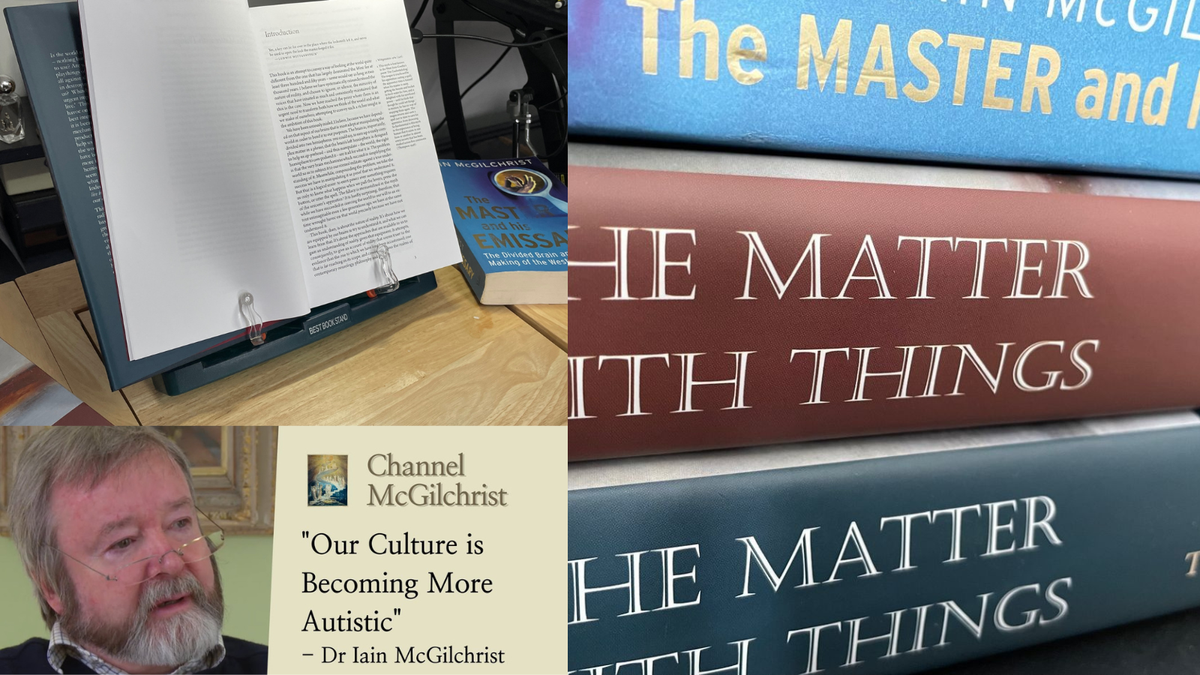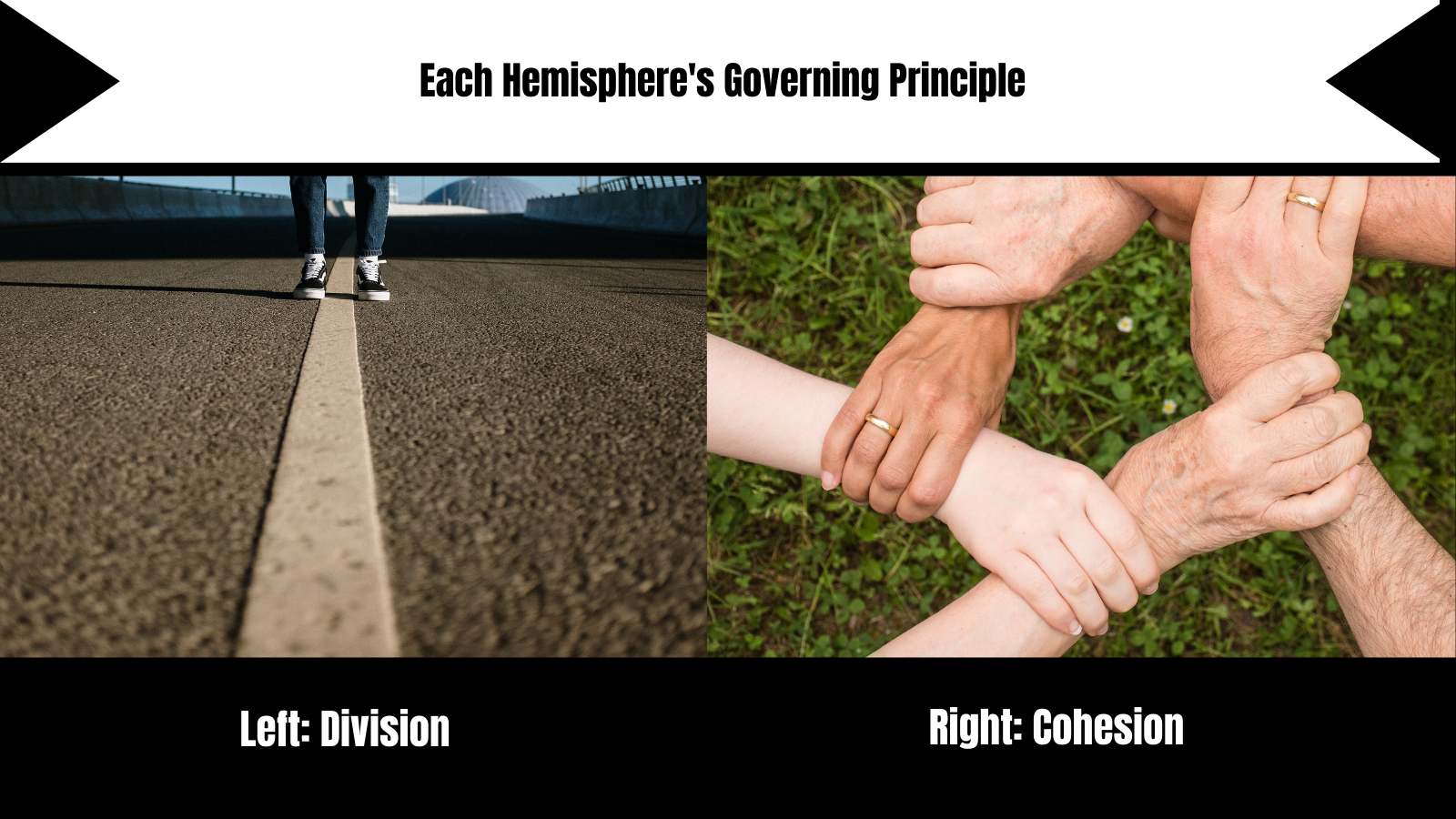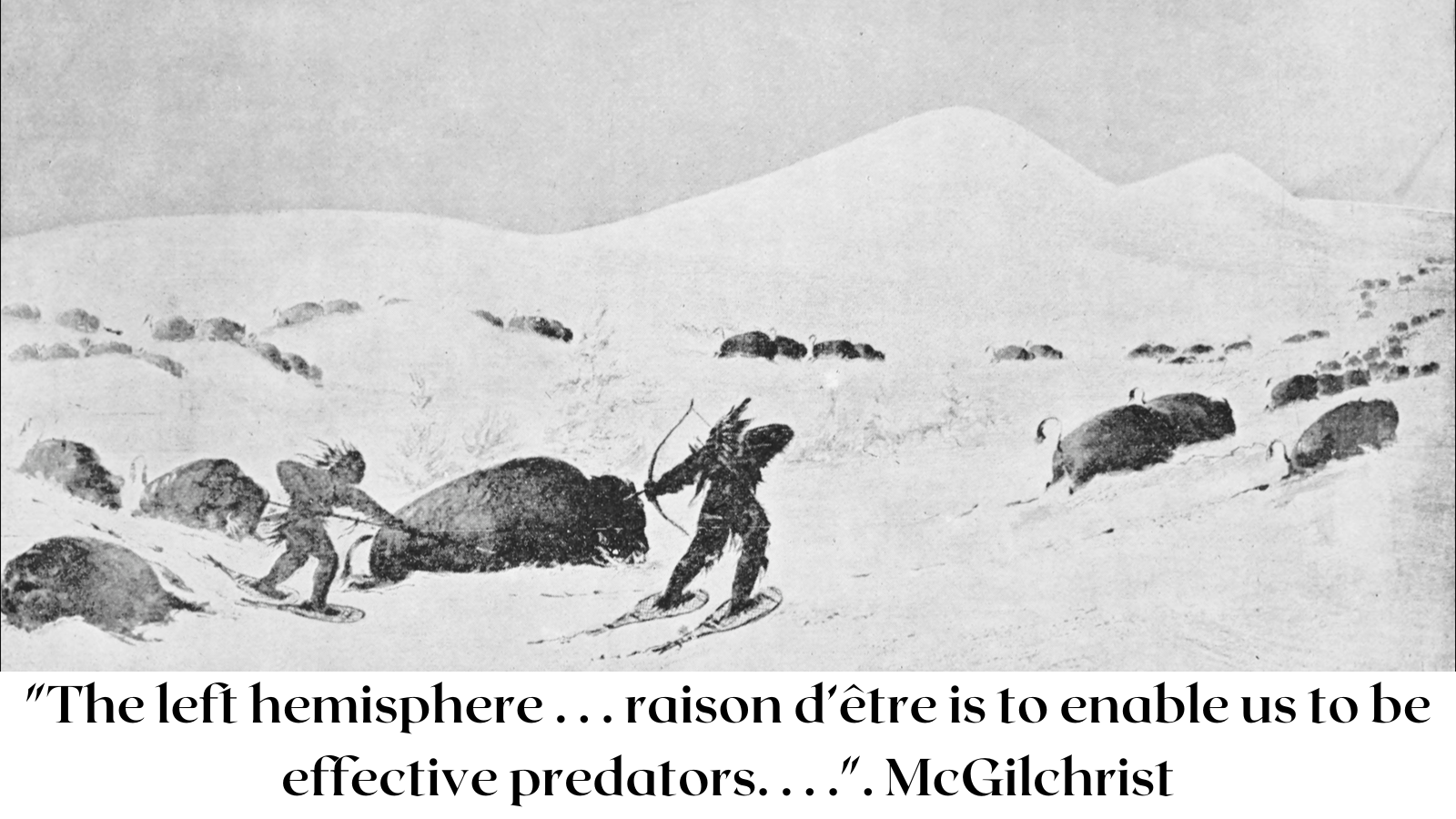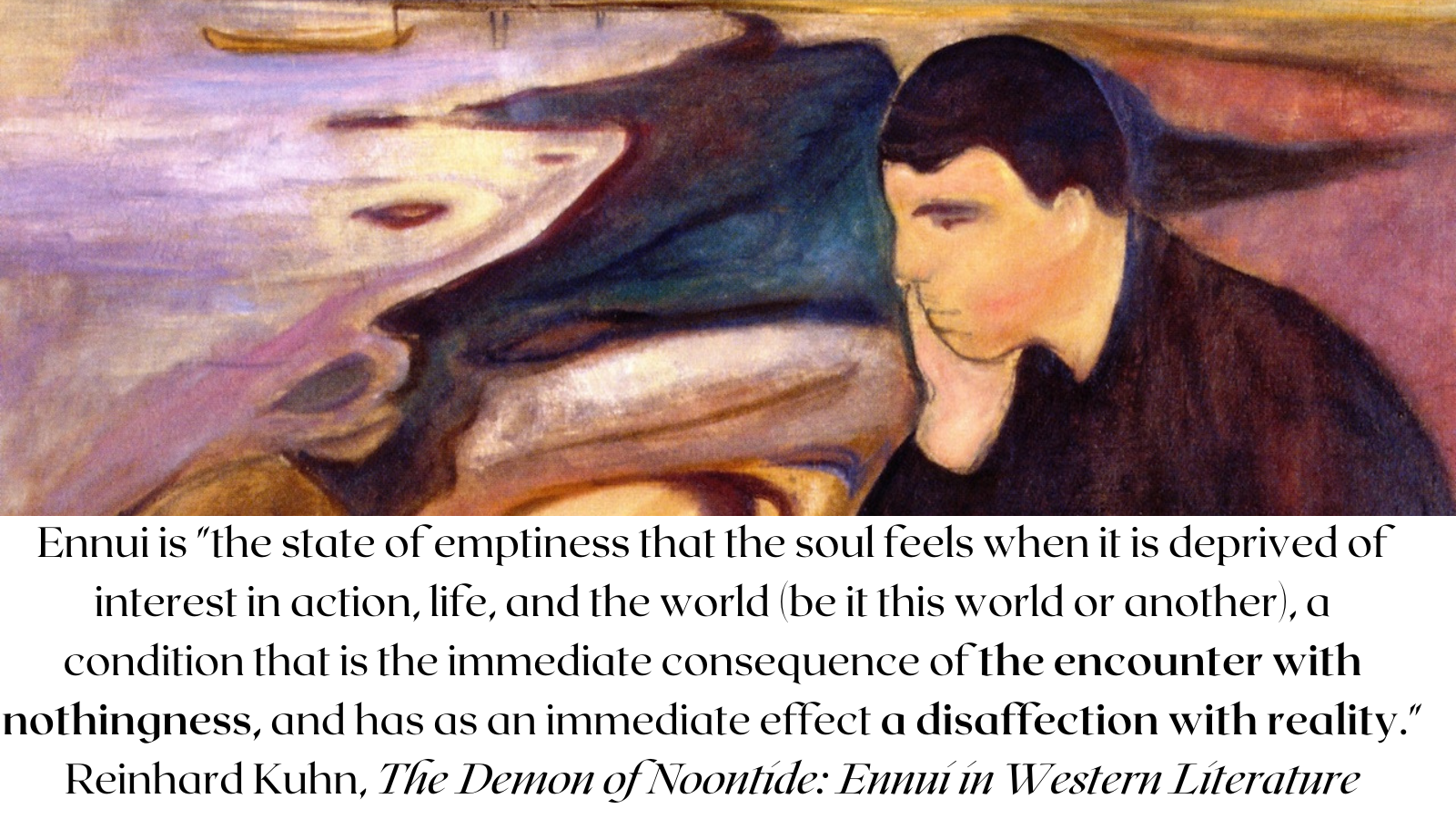The Seven Deadly Sins are Dispositions of the Left Hemisphere


When you throw that vase against the wall and scream "f****! (fudge), you're sinning. The temper tantrum is a sinful act.
But the anger that prompted the tantrum isn't. Anger is just a sinful disposition.
That's why it's deadly: By harboring a sinful disposition like anger, you leave the door open for a host of sinful acts, like temper tantrums.
The left hemisphere's way of doing things, by itself, isn't sinful. Does it manipulate, divide, grasp, detachedly abstract, rationalize, dehumanize, and hold a lofty opinion of its abilities? Sure. But that's the way it operates . . . the way it needs to be and how it properly operates. The left hemisphere is no more sinful than a rock, knife, or gun.
This is something Iain McGilchrist has emphasized as a "cautionary note" in his work.
The left hemisphere isn't a problem: it's a phenomenal and necessary thing. "Of staggering importance," is how McGilchrist describes it.
The problem is how it operates. Its operations naturally expand and, if not held in check, cause enormous problems. Analogize it to fire: in my cigar lighter, good; in Maui a few weeks ago, bad.
The left hemisphere becomes bad when we acquire a left-hemispheric disposition.
The left hemisphere tends toward the bad (to cause problems) because its methods (operations, the way it attends to things, and "how" it functions) affect how we view the world. To the man with a hammer, everything looks like a nail. To an unmediated left hemisphere, the world looks like something to be manipulated, divided, grasped, and conquered; like something we can comprehend and control through our rationality. The more we look at the world like this, the more the world will behave like this: that fine hand-carved walking cane isn't a nail, but if I pound it with this hammer, it kind of responds like a nail.
The more our left hemisphere controls our mental world, the more our mental world assumes a disposition that reflects how the left hemisphere attends to things.
This is exactly what the Seven Deadly Sins do: By controlling our mental world, our disposition becomes gluttonous, lustful, greedy, angry, despondent, envious, and proud.
Moreover, every deadly sin is a branch of a rogue left hemisphere.

Gluttony: The left hemisphere's job is to provide for the necessities of life. it might be enjoyable to sing, write poetry, and appreciate flowers, but we have to eat. The left hemisphere is the emissary that the right hemisphere sends into the world to gather that most basic thing we need to survive: food. Left unhinged, the left hemisphere craves more and more food.
Lust: The left hemisphere grasps and controls. It kills the bison so we can eat. It conquers the female so we can satiate our desires.

Greed: You could argue that the left hemisphere's reason for existence is a prelude to greed: it is designed to acquire and possess. If left unchecked (unmediated/controlled by the right hemisphere), it's going to lapse into greed and come to value all things in terms of their usefulness for acquiring.
Anger: The left hemisphere strives to acquire: it aims. When our aims are frustrated, anger arises. Anger (with aggressiveness), says McGilchrist, is the "most highly characteristic" emotional characteristic of the left hemisphere. Master, 432.
Sloth: This one is tricky. "Sloth" here means spiritual sloth, or what classically was known as ennui. It brings a measure of melancholy, dejection, or sadness. If your life is dominated by the left hemisphere, you aren't connected to the deeper elements of reality (to the full Reality Spectrum), with the result that you're occasionally going to feel that life has no meaning and you're going to fall into a funk: into ennui.

Envy: The world is hard. The world is scary. Even the left hemisphere would like to take a break, to relax and enjoy its acquisitions. A vibrant right hemisphere knows it can take that break whenever it wants, that leisure doesn't depend on external circumstances. The left hemisphere doesn't understand that, so only it can become envious of other people's security and contentedness.
Pride: Pride is a lack of humility. Humility is self-forgetfulness. The left hemisphere by its nature can't forget the self. Its whole existence is to serve the self: to get food, money, and sex. If you have a left hemisphere that doesn't serve the self, you're screwed. It's the best example of why no one should excoriate the left hemisphere for doing its job: of being selfish, but at the same time, insisting that it be tightly reined in.
Pride is "the root, the source, the mother of sin." John Chrysostom




